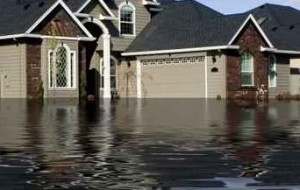You may or may not be aware of the United States Housing Act of 1937 which requires states to subsidize housing for low-income families through the Department of Housing and Urban Development (HUD). HUD administers housing vouchers for those who cannot afford to pay the full price of housing through the local Public Housing Authorities. The PHA has two options for vouchers; one is called tenant-based voucher and one is the project-based voucher. Under the tenant-based voucher, a voucher is provided for the tenant to use in any housing of their choice that offers financial assistance housing so it is valid for more than one area; if the tenant wishes to move, the voucher will carry over. The project-based voucher is valid only for the specific housing unit for which it has been assigned and if the tenant moves, they must reapply for financial assistance. So how exactly do you go about getting this help?
for those who cannot afford to pay the full price of housing through the local Public Housing Authorities. The PHA has two options for vouchers; one is called tenant-based voucher and one is the project-based voucher. Under the tenant-based voucher, a voucher is provided for the tenant to use in any housing of their choice that offers financial assistance housing so it is valid for more than one area; if the tenant wishes to move, the voucher will carry over. The project-based voucher is valid only for the specific housing unit for which it has been assigned and if the tenant moves, they must reapply for financial assistance. So how exactly do you go about getting this help?
When it’s time to apply for Section 8 housing, be sure to find out where your nearest PHA office is. You can call them to ask about filling an application out online or in person. Either way, there are some things you will need in order to complete the paperwork. The first thing to consider is your eligibility which will be based on several factors. These include your annual gross income, your family size, your immigration status (section 8 is usually only available to US Citizens and persons with legal immigration status), and the median income of the area/city in which you are applying. Most applicants who are eligible for Section 8 are earning annually between 30% and 50% of their area’s median income figures.
Once you have assured yourself of your eligibility for the program, the next step is to collect the necessary paperwork to document your income and prove your need. This will require pay stubs, a letter from your current landlord, any documentation regarding current mortgage or rent payments, and any other paperwork you think will help you in preparing your application. An important thing to remember here is that there are different types of vouchers so you must pick the right one. There is a tenant voucher if you are planning on renting and there is also a property voucher if you simply need assistance paying a housing mortgage or a condominium payment. Note that Section 8 may also be able to help you purchase a small home for a cheaper price to allow you to make small monthly payments on it.
After you have gathered all of your information, determined your eligibility, and understood which voucher you are applying for, you simply call or visit your local PHA office and Voila! The hardest part of the whole process is the waiting game that follows. Because many families apply for Section 8 and there is not always enough housing to accommodate everyone on the list, your name will be placed on a waiting list depending on your need. Your waiting time will vary from city to city but hopefully before long, you will be able to live somewhat comfortably in your new home.
If you enjoyed reading this post you will find the main Mover’s Atlas site even more Interesting! There you can discover important information about what surrounds your current or future Florida home, give it a look: Mover’s Atlas.



